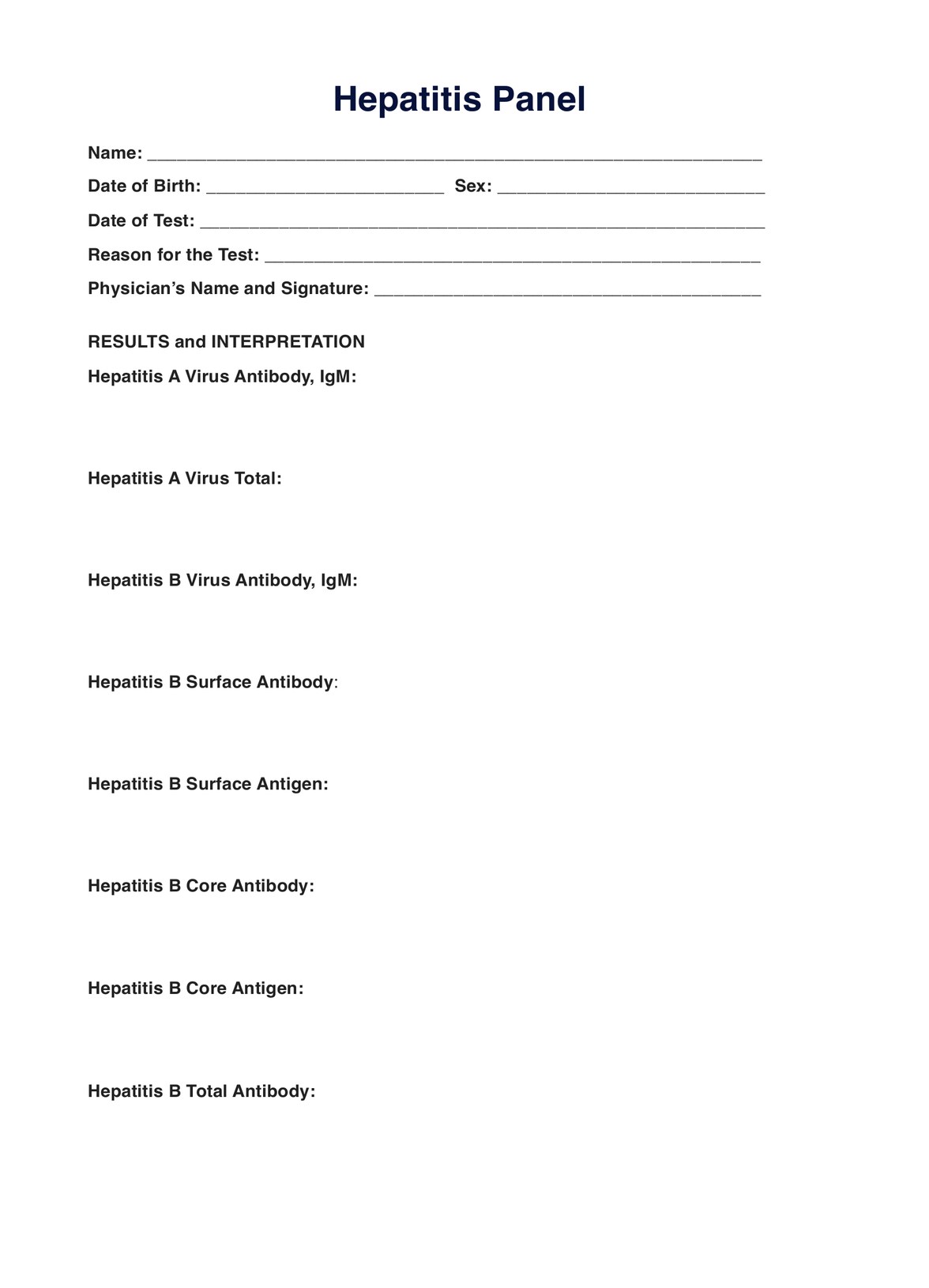Healthcare practitioners like physicians and nurses caring for patients suspected of having hepatitis are most likely to request a hepatitis panel test.

Know more about the hepatitis panel test, its use, result interpretations, and more with our short guide.
Healthcare practitioners like physicians and nurses caring for patients suspected of having hepatitis are most likely to request a hepatitis panel test.
Hepatitis panel tests are used when the patient has been exposed to someone with hepatitis, is showing symptoms of hepatitis, shows abnormal results to liver test, or is at risk of developing hepatitis.
There is no standardized duration for a hepatitis panel test. However, though collection can take a few minutes, depending on the type of hepatitis, results can take 30 to a few weeks to come back for analysis and interpretation.
EHR and practice management software
*No credit card required
Free
$0/usd
Unlimited clients
Telehealth
1GB of storage
Client portal text
Automated billing and online payments